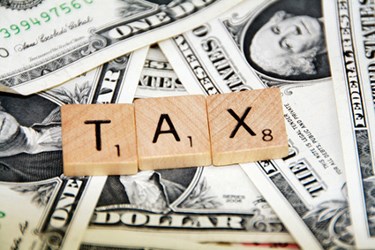Will Trump Repeal Medical Device Tax?
By Jof Enriquez,
Follow me on Twitter @jofenriq

Industry stakeholders and observers expect that the suspended medical device tax will most likely be repealed permanently by the Republican-led U.S. Congress soon after incoming U.S. President Donald Trump assumes office on January 20.
The 2.3 percent levy on the sale price of taxable medical devices was suspended in December 2015, three years after it came into effect. Industry groups, who vehemently opposed the tax and labeled it a job-killer and a barrier to innovation, lauded the two-year suspension, but are hoping for a permanent repeal of the tax now that the Republicans are gaining full control of Congress.
Sen. John Barrasso (R-Wyo.), a member of the Senate Republican leadership, said "the plan is to move the entire piece that we moved last year," referring to Republican-backed repeal legislation that ultimately was vetoed by Obama, reports Reuters. "And it did include the medical device repeal, so I would expect that to be part of the list as well. It's to repeal the taxes related to Obamacare."
While campaigning, Trump vowed to abolish Obamacare, but has since said he's open to keeping some parts of it intact. But the contentious device tax, a funding mechanism for Obamacare, is one of the most likely to go.
“The device tax, the health insurance tax, the Cadillac tax — certainly all those are on the chopping blocks,” lobbyist Bob Wood, president of government affairs at the lobbying firm Barbour, Griffith and Rogers, told the Washington Post.
Besides pronouncements that FDA reform is a priority to achieve “greater focus on the need of patients for new and innovative medical products,” Trump has not categorically declared that he plans to get rid of the device tax.
Trump's pick as new Secretary of Health and Human Services (HHS), Tom Price, M.D. (R-Ga.), has long been a vocal critic of the Affordable Care Act (ACA), including the medical device tax, notes the life science association BioUtah.
"I do expect President-Elect Trump to rescind the medical device tax, which I expect to have an overall minor long-term effect on the medical device industry. Beyond that prediction, I think we do not yet have enough information on what policy and financial changes his presidency will attempt to bring, not to mention which of those changes will actually be implemented," wrote Alan Lipschultz, president of HealthCare Technology Consulting, in an e-mail to the Association for the Advancement of Medical Instrumentation (AAMI).
“I do not think that the dust has settled yet,” he wrote to the nonprofit health technology interest group of clinical and biomedical engineers and technicians, industry representatives, government regulators, doctors, nurses, and academics.
Medical device manufacturers are feeling "a great sense of urgency in trying to get complete repeal done early next year, rather than later in the year, because companies need certainty," said J.C. Scott, head of government affairs at medtech group AdvaMed, to Reuters.
A steadfast opponent of the tax since its inception, the association claims that the device tax has cost as many as 39,000 U.S. jobs. Supporting that claim is a survey commissioned by the Medical Imaging & Technology Alliance (MITA), released in July, that notes an uptick in hiring since the tax was suspended in December. The survey found that 69 percent of respondents are likely to hire more U.S.-based employees, and 77 percent are likely to invest additional resources in research and development (R&D) given the two-year suspension.
A permanent repeal of the tax will result in more gains for the U.S. medical device industry, whose ranks include the big players, like Medtronic and Johnson & Johnson, as well as the small businesses comprising the majority of medtech in the U.S. — 80 percent of those companies employ fewer than 50 people.
"At the time it was suspended, we were told by people in Washington that in all probability it will not be reinstituted. But still, we'll all sleep better at night knowing that it's gone," said Mark Throdahl, CEO of OrthoPediatrics Corp., which has 60 employees in its Warsaw, Ind. headquarters, to Reuters.
